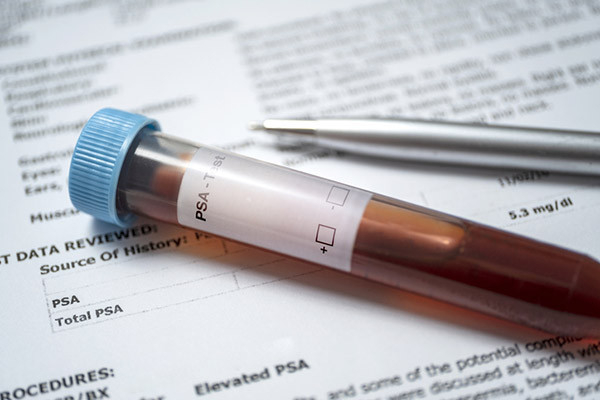 Everyone who lives with inflammatory bowel disease (IBD) knows their illness has a major impact on daily life. Many people are diagnosed in their 20s or 30s, a time when we might hope for few health challenges.
Everyone who lives with inflammatory bowel disease (IBD) knows their illness has a major impact on daily life. Many people are diagnosed in their 20s or 30s, a time when we might hope for few health challenges.
Medications, and sometimes surgery, may be used to treat IBD. If you identify as LGBTQ+, you might wonder how all of this may affect you — your physical health, of course, but also your sexual health and pleasure. Below are a few things to understand and consider.
What is inflammatory bowel disease?
IBD is a condition that causes inflammation along the gastrointestinal (GI) tract. The two main types are Crohn's disease and ulcerative colitis:
- Crohn's disease: inflammation can occur anywhere along the GI tract (from the mouth to the anus)
- Ulcerative colitis: typically affects the large intestine (colon) only.
IBD can cause diarrhea, bloody stool, weight loss, and abdominal pain, and is typically diagnosed with blood and stool tests, imaging, and colonoscopy. A diagnosis of IBD may increase the risk of developing anxiety or depression, and can also have an impact on sexual health. People with IBD may require long-term medical treatment or surgery for their condition.
The starting point: Talking to your doctor
Talking to your medical team about IBD and sexual health may not be easy. This may depend on how comfortable you feel disclosing your LGBTQ+ identity with your health care providers. Ideally, you should feel comfortable discussing sexuality with your medical team, including what types of sexual partners and activities you participate in and how IBD may affect this part of your life.
Be aware that health care providers may not be able to address all LGBTQ+-specific concerns. Optimal care for people with IBD who identify as LGBTQ+ is not fully understood. However, this is an active area of research.
How might medicines for IBD affect sexual health?
Many effective IBD medications subdue the immune system to decrease inflammation. These immunosuppressive medicines may raise your risk for sexually transmitted infections (STIs) such as HIV, chlamydia, syphilis, and gonorrhea.
What you can do: Discuss these concerns with your doctor so you can take appropriate protective measures. This might include:
- ensuring that your vaccinations, such as hepatitis B and HPV, are up to date.
- engaging in sex using barrier protection to prevent STI transmission.
- taking pre-exposure prophylaxis (PrEP). This safe and effective medicine helps prevent the spread of HIV. Ask your primary care doctor or gastroenterologist if PrEP is appropriate for you.
How might surgery for IBD affect sexual health?
For some people with IBD, gut inflammation is severe enough to require surgery to remove part of the intestine. For example:
- Abscesses or fistulas (abnormal connections between two body parts) sometimes form when someone has Crohn's disease around the anus. This may require surgical treatment.
- Active inflammation in the rectum or anus may make sex painful, particularly for people who engage in anal receptive sex.
- We don't yet know whether anal receptive sex is safe for people who have had surgery to remove the colon and create a J-pouch, which is formed from small intestine to create an internal pouch that enables normal bowel movements.
What you can do: Discuss your concerns with your gastroenterologist and colorectal surgeon.
If you engage in anal sex, you may be confused about whether it is safe to do so. While you may feel uncomfortable discussing this concern and others with your doctor, try to be as honest and open as you can. That way, you'll receive the best information on how to engage in safe and enjoyable sex after an IBD diagnosis or surgery.
What else to consider if you are transgender
People with IBD who are transgender may have additional concerns to address.
For example, there may be a risk for sexual side effects from gender-affirming surgery. These procedures may include vaginoplasty (surgical creation of a vagina) for transgender females, or phalloplasty (surgical creation of a penis) for transgender males. The safety of these procedures in people with IBD is not currently well understood.
What you can do: If you identify as transgender, ask your doctor if any gender-affirming surgeries you've had or medicines you take, such as hormones, might affect your IBD, recommended treatments, or sexual health.
If you're considering gender-affirming surgery, discuss your options with your medical team. Be aware that gender-affirming surgery may be more challenging, or may not be advisable, for people with complex or active IBD. It's important to discuss your specific risks with your doctor when pursuing gender-affirming care. Having access to a team of physicians, including a surgeon and a gastroenterologist, may improve outcomes.
The bottom line
Try to talk to your gastroenterologist about how your sexual practices and gender identity may affect — and be affected by — your IBD. A conversation like this may feel uncomfortable, but being candid about your symptoms and concerns will help you receive the best possible care.
Often, a multidisciplinary approach to care is helpful. Your health care providers, including your gastroenterologist and surgeon, may suggest seeing additional specialists.
Much remains unknown about sexual health and practices in LGBTQ+ people with IBD. While more research is needed, open communication on the impact of medications, surgery, and other aspects of living with IBD can do a lot to improve your quality of life.
About the Authors

Andrew Eidelberg, MD, Contributor
Dr. Andrew Eidelberg is a third-year internal medicine resident at Beth Israel Deaconess Medical Center. After graduating from the University of Miami and Weill Cornell Medical College, he decided to pursue a career in gastroenterology, specifically … See Full Bio View all posts by Andrew Eidelberg, MD 
Loren Rabinowitz, MD, Contributor
Dr. Loren Rabinowitz is an instructor in medicine Beth Israel Deaconess Medical Center and Harvard Medical School, and an attending physician in the Inflammatory Bowel Disease Center at BIDMC. Her clinical research is focused on the … See Full Bio View all posts by Loren Rabinowitz, MD







